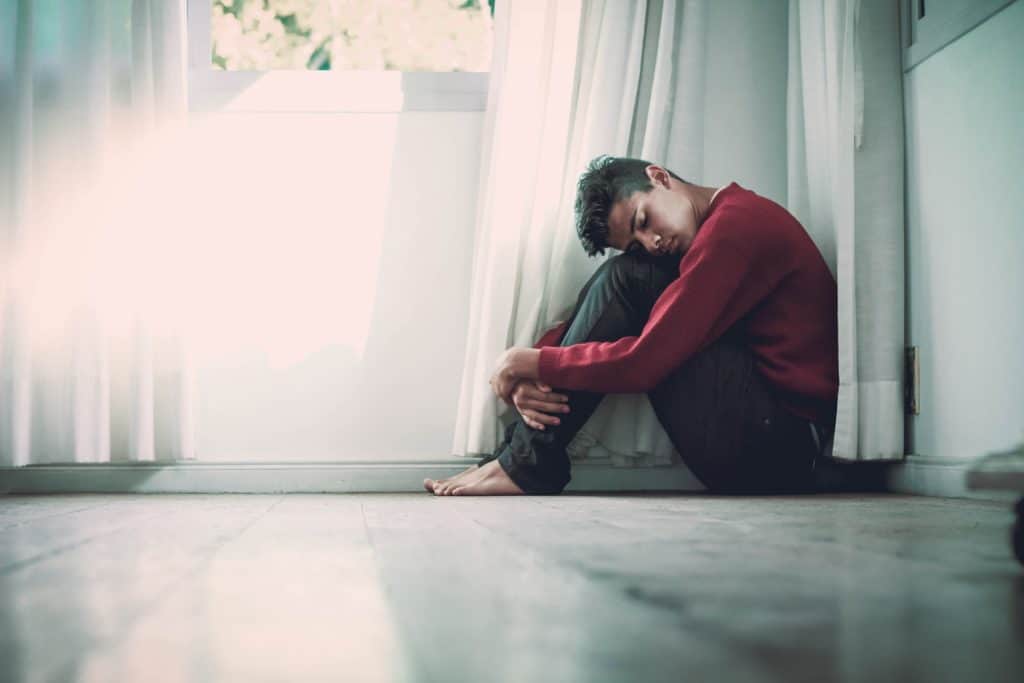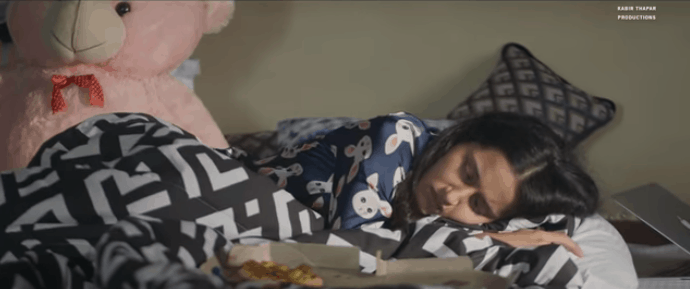World Mental Health Day is observed on October 10, with the objective of raising awareness about mental health issues.
According to World Health Organisation’s (WHO) World Health Report of 2001, one in four people in the world will be affected by mental or neurological disorders (depression, bipolar disorder, schizophrenia, dementia, etc) at some point in their lives.
It is estimated that currently, at least 10 percent of the world’s population is affected.

Citizen Matters caught up with Malathi to find out what prompted her to make a film about mental health, her experience as a first-time film maker and future plans on creating mental health awareness.
Despite the high estimated incidence we do not do enough to treat mental disorders as we do physical ones. Mental well-being is usually perceived differently from physical well-being.
Mental health matters
This year, on October 10, a short film about depression was released. The concept, story, screen-play and lyrics of Smile Simi are by Malathi Rai, a human resources executive who lives in Mumbai. The film is directed by Kabir Thapar.
Simi is a teenage girl who seems to have nice parents and a comfortable life, but there’s an enemy in the shadows. In a simple way, the film shows how hard it is for the sufferer when no one understands what is happening in the mind, because it’s not visible. Positivity and happiness are miles away. The film also depicts how mental health impacts the whole family and not just the person who is going through the mental turmoil.
Q. What got you interested in mental health? And why a film?
My first answer would be, honestly I don’t know. But if I were to trace the sequence of events that lead to this, there were many dots that managed to get joined in my head.
With COVID19 forcing everyone indoors, there was a lot of talk about mental health. As Vice President – HR in an MNC, I had initiated a few measures to address this amongst our own employees. The thought kept playing in my mind though. The Sushant Singh Rajput saga [the actor died by suicide in June] and the resultant focus on mental health added fuel to it.
Many years ago, I knew someone who had sacrificed her entire life to take care of a brother with schizophrenia.
Last year, a lady who is a lecturer in a Mumbai college talked to me about how family members go through hell, in dealing with someone with a mental illness and how we need to create more support groups for care-givers.
I think the change in routine from a “get up, get ready, go to work” pattern to a completely different one also unhinged the existing neural pathways in the brain and created new ones and that spurred the creative process.
One day I had an Archimedes moment – literally holding the broom in hand. Why not make a short film about this issue?
Q. You’ve never made a film before. You’re not from the industry. How was the experience?
I learnt on the job – that’s such an interesting way to learn. For example I read many, many screenplays to understand how one translates a story into a screenplay.
There were so many ‘aha’ moments – like when I sat with the Director to picturise the dance sequence for a song. For each line, we had to record the seconds when the line started and ended, and decide what the scene would be. And the actual shoot – this is something everyone should experience – on the one hand it can be mind-numbingly boring – when you are into the 14th take of the same action/dance step, but it’s also amazing to see how the actors bring the same passion and emotion into every take. My respect for the acting profession grew manifold.
There was a place where I wrote about the mother being exasperated with her daughter’s binge eating. It was just a description of the scene and a line of dialogue – and you have to see how it’s enacted in the film.

Q. What do you hope to achieve with this film?
The film is my way of voicing out something I felt strongly about. Mental health is important. Problems with mental health may lurk in the unlikeliest of places and people. You have to see the comments on YouTube to understand how this resonates with so many people. Awareness and Acceptance are the two magical words. Once you cross these two, there’s hope for a better life.
Q. You’ve received critical acclaim for the film. What’s next?
The film is the start of a campaign on mental health and some of the contributing factors. We plan to have webinars and group discussions with various groups of people to understand how they experience it, what triggers it, how parents, teachers, and people around them can be more supportive of their situation.
Awareness is half the battle won so there will be a lot of activities aimed at creating awareness. We will also work on removing the stigma. We are in touch with several mental health experts who are keen to be associated with the campaign.
Q. Finally, where can we watch the film?
It’s freely available on YouTube. Please do watch and like it. That would be your contribution to spreading awareness.
Also read:
COVID-19 has put the spotlight on mental health, but India needs more
Thank you for such a wonderful article ! Very informative.
It is tough to talk about mental illness more so many will not even realise that they are suffering from one. I happen to follow https://www.blognime.com/ which is a blog with a wealth of wellness information. You get to know everything about health, lifestyle, mental wellness, spa treatment and more.